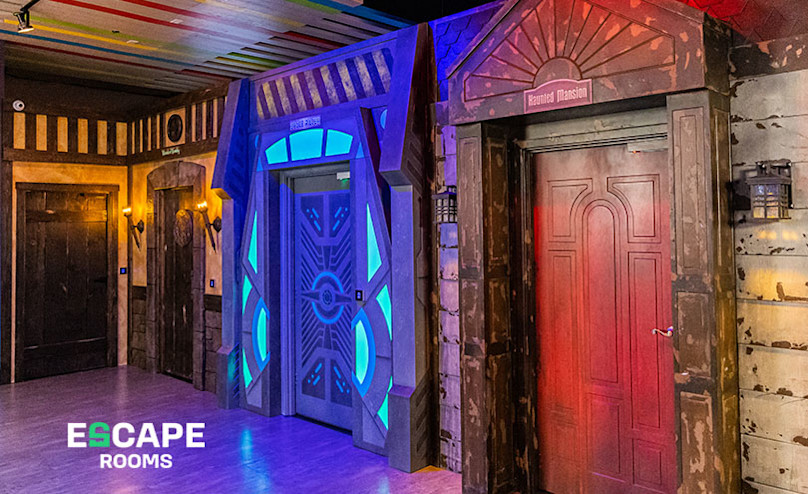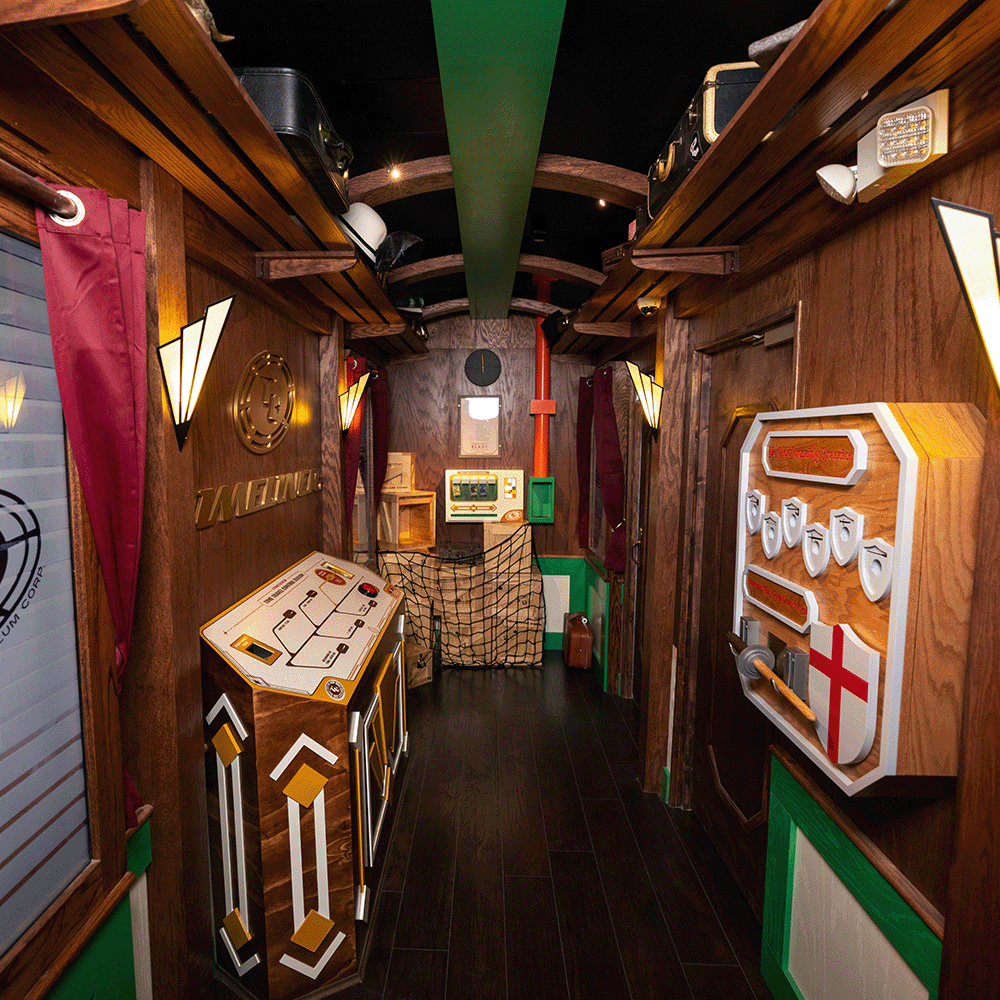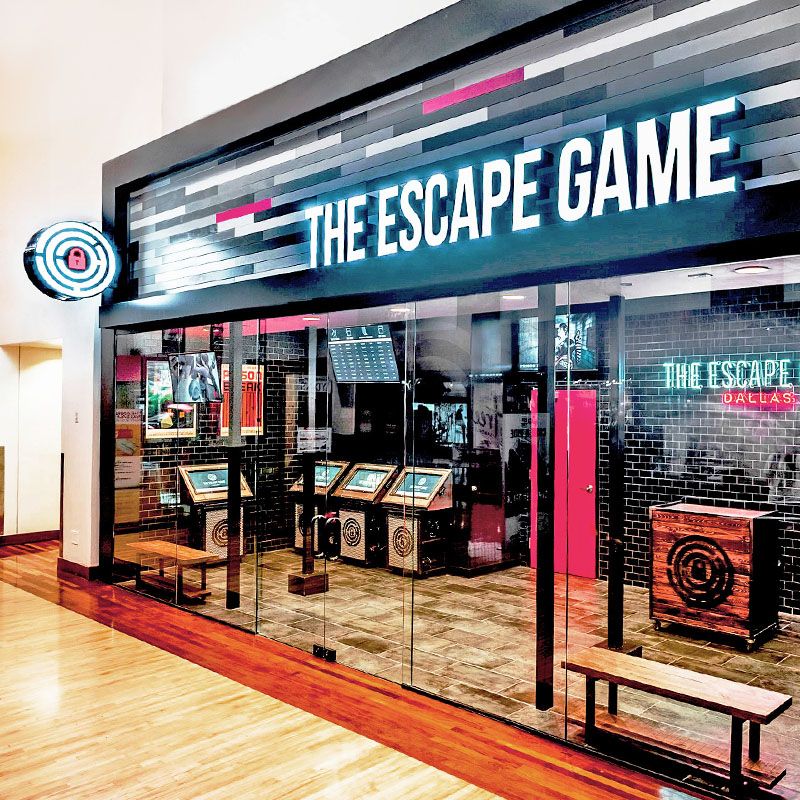Escape Room Minneapolis Mall of America-- Immersive and Fun
Escape Room Minneapolis Mall of America-- Immersive and Fun
Blog Article
Group Techniques: How to Work together Successfully in a Getaway Area
Teams must proactively listen to each participant's insights, assign roles that align with individual toughness, and keep routine check-ins to make sure focus and prevent redundancy. By cultivating an environment that values cohesion and adaptability, groups can significantly heighten their efficiency and success prices.
Establish Clear Interaction

To help with clear interaction, it is crucial to mark a central factor of get in touch with for details circulation. Brief, concentrated updates from each group member can keep the group educated without frustrating them with information.

Designate Functions Purposefully
While clear interaction sets the foundation for effective synergy, designating roles tactically makes certain that each employee's strengths are made use of effectively. In a retreat area scenario, the time-sensitive and complex nature of challenges necessitates an efficient method to task delegation. By determining and leveraging private expertises, groups can optimize their analytic abilities and enhance general performance.
First, examine the special abilities and features of each individual. Somebody with an eager eye for information may succeed in discovering covert objects, while a rational thinker could be much better matched to resolving challenges. It's similarly vital to have a leader that can look after development, manage the timeline, and make crucial calls when essential. This role commonly requires solid organizational and social abilities.
Second, make certain that functions are versatile and adaptable. As new obstacles arise, the group must have the ability to pivot, reapportioning jobs as called for. This flexibility helps preserve momentum and prevents traffic jams that could happen as a result of stiff function assignments.
Eventually, a critical approach to duty project not only takes full advantage of the staminas of each group participant however also cultivates a cohesive setting, driving the team towards a successful retreat.
Make Use Of Diverse Abilities
Acknowledging and using the varied abilities within your team can substantially raise your efficiency in a retreat space. Each staff member brings special staminas to the table, and effectively leveraging these capacities can expedite analytic and boost overall efficiency. A team member with strong logical skills may stand out at deciphering complex codes or patterns, while one more with eager empirical capabilities might rapidly detect hidden hints that others may ignore.
Effective interaction is crucial to utilizing these varied abilities. Urge staff member to voice their insights and ideas immediately, making sure that pop over to this web-site all possible solutions are taken into consideration. This comprehensive strategy fosters a vibrant setting where creativity and critical reasoning can grow. Furthermore, designating jobs that straighten with each participant's staminas can stop traffic jams and make sure that development is continuous.
Furthermore, diversity in skills typically translates to diversity in believing designs, which is important in a getaway room setup. While some difficulties might call for sensible thinking and precision, others might gain from creative and side reasoning. By identifying and leveraging this variety, groups can address a wider variety of difficulties better, thus increasing their opportunities of an effective retreat.
Manage Time Properly

First, allot preliminary minutes for a fast survey of the room. Identify visible puzzles and split tasks based upon group members' staminas, making certain that no one is idle. Set interior time checkpoints to assess progression regularly; as an example, objective to have half the puzzles fixed by the mid-point of the game. This practice can help keep the team concentrated and prevent time from escaping unnoticed.
In addition, prevent tunnel vision. If a challenge is taking too long, revolve staff member or go on to an additional difficulty, returning later with fresh viewpoints. Interaction is critical-- maintain everyone upgraded on solved problems and continuing to be tasks to avoid repetitive efforts.
Finally, make use of any kind of tips or clues moderately yet purposefully - best escape room. Knowing when to ask for help can conserve visit site valuable time. By sticking to these time management concepts, groups can substantially improve their chances of an effective and satisfying retreat room experience
Debrief and Mirror
Representation is a vital facet of group advancement and improvement in the context of getaway areas. When the challenge is completed, whether effectively or not, it is crucial for the group to take part in an organized debriefing session. This procedure allows staff member to examine their efficiency, identify staminas, and identify locations for enhancement.
Begin the debrief by reviewing what worked out. Highlight certain instances of efficient communication, problem-solving, and collaboration. Identifying these favorable behaviors enhances them and review encourages their repetition in future difficulties.
Talk about moments of confusion, miscommunication, or inadequate strategies. Motivate an open and useful dialogue where team members can share their viewpoints without anxiety of objection.
Verdict
In verdict, successful cooperation in a getaway room is based upon clear communication, tactical role jobs, the efficient application of varied abilities, and skilled time monitoring. Routine check-ins and structured debriefings are important for keeping focus and fostering continual renovation. By creating a natural and adaptive group setting, the possibility of effectively resolving challenges and achieving the goal of escaping the space is significantly boosted. This method not just ensures success yet also promotes collective growth and understanding.
Report this page